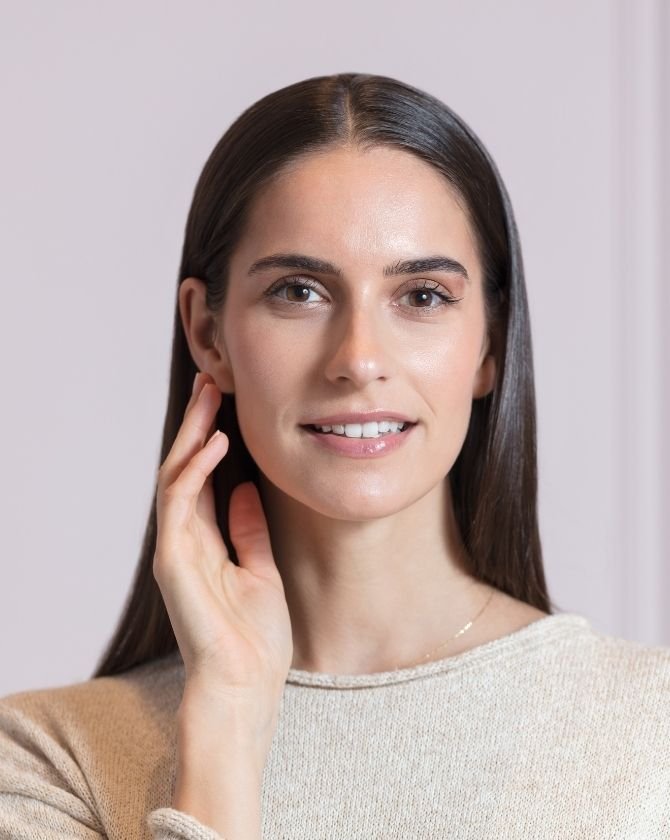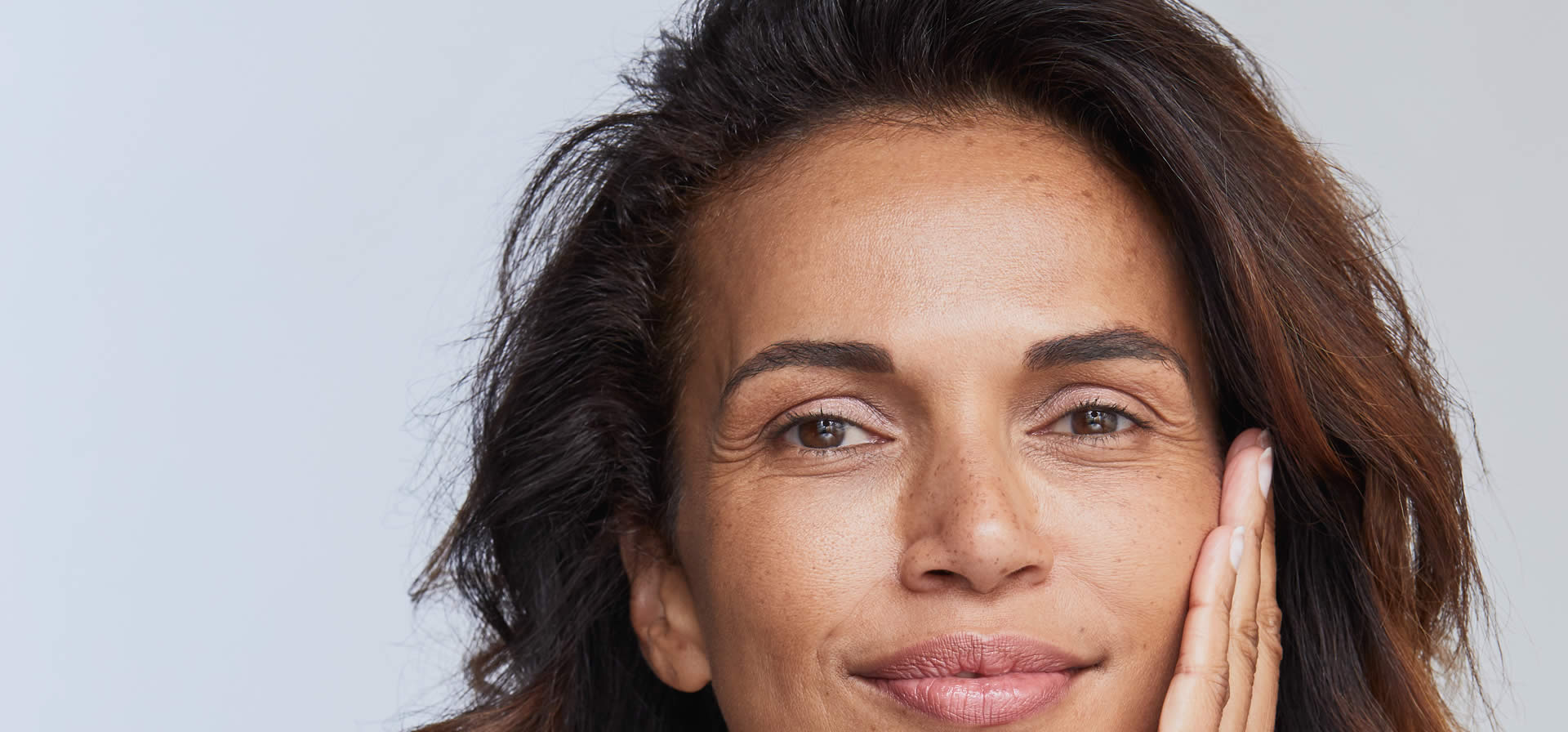
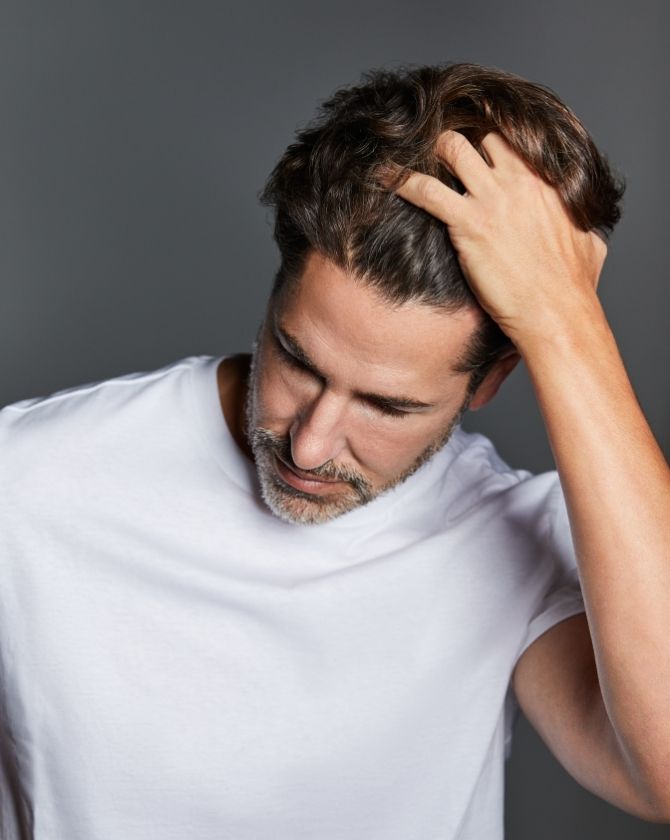
Finasteride, marketed under the brand name Propecia, is a scientifically proven anti-hair loss drug. To be taken orally as a 1mg tablet per day, it acts directly on male hormones. By limiting the conversion of testosterone into dihydrotestosterone, which is responsible for hair loss, Finasteride combats baldness at the root and stimulates hair growth.
Finasteride is especially recommended in cases of incipient or slight baldness, for men who still have a relatively large hair reserve. It can be taken as an adjunct to a DHI hair transplant, especially in advanced forms of baldness (androgenetic alopecia), in order to strengthen the grafts and preserve the hair follicles surrounding the hair transplant areas.
The results of Finasteride are visible from 3 to 6 months, provided that the treatment is followed assiduously. After 5 years of treatment with Finasteride, 90% of patients have stopped losing their hair and 65% have experienced better hair growth. Finasteride is only available on prescription and should be monitored by a doctor to assess the progress of treatment.
Regularity and continuity in taking Finasteride are essential, because as soon as the treatment is stopped, hair loss resumes. Beware also of the side effects of Finasteride, or Propecia, whose active ingredient can lead to reduced libido, impotence and low morale, even depressive tendencies.
Minoxidil is one of the most widely recognised hair loss medicines for men and women suffering from alopecia. Used topically on the bald area, in liquid or foam form, Minoxidil is a vasodilator (dilates the blood vessels) that is particularly effective in stimulating healthy hair growth. Specifically, Minoxidil promotes the loss of hair at the end of its life, in the telogen phase, and generates the growth of new healthy hair, in the anagen phase.
However, Minoxidil does not act directly on the causes of baldness and is only effective in relatively mild cases of baldness. When male or female baldness is very advanced, a DHI hair transplant is recommended to replenish bald areas of the scalp. A drug treatment with Minoxidil can then be prescribed in addition to a hair transplant, in order to strengthen the existing hair as a whole, including the grafts.
1-2 local applications of Minoxidil to the bald areas daily are recommended, using a very light massage, using the 5% concentrated solution for men and 2% for women. The results of a Minoxidil hair treatment are first seen in hair loss at the end of the cycle after a few weeks: this is not to be feared, as this initial acceleration of hair loss is part of the process set in motion by Minoxidil to activate hair growth.
The beneficial results of Minoxidil are visible after 4 to 5 months of treatment. The newly grown hair is healthy. After 6 months to 1 year, hair loss is largely reduced in 1 out of 3 patients. In contrast, the efficacy of Minoxidil stagnates or decreases after 2 years of treatment. Its side effects may include local irritation.
Since they act in a complementary way, Minoxidil and Finasteride (or Propecia) can be combined in a drug treatment that is simultaneously effective against hair loss and for hair growth. Above all, they can be combined with a DHI hair transplant and the MesoLed hair treatment offered by Maison Lutétia in Paris.
In case of androgenic alopecia in women, treatment with Spironolactone, marketed under the name Aldactone, may be prescribed by the doctor. Spironolactone acts on the androgenic hormones responsible for hair loss and therefore helps to combat it before it occurs.
On the other hand, some contraceptive pills can act as a female hormone treatment for hair loss. More specifically, pills containing norgestimate or desogestrel have an antiandrogenic effect that helps preserve hair.
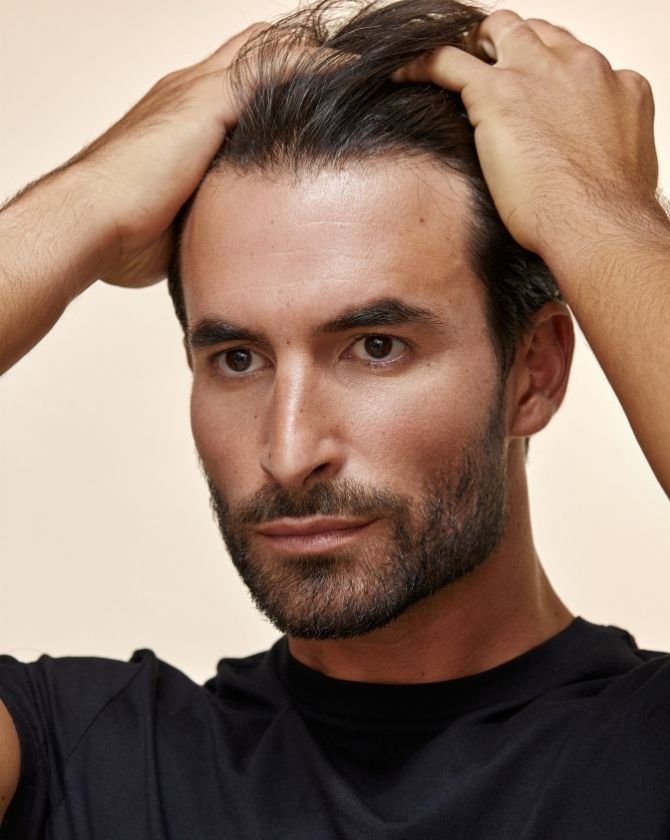
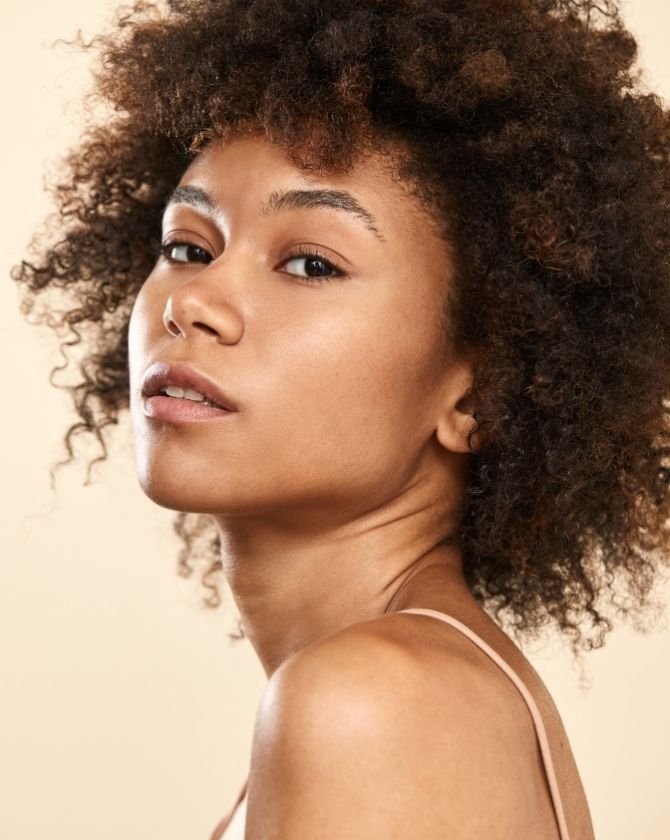
Several types of food supplements are recommended to combat hair loss and maintain a healthy head of hair. Rich in vitamin B, which is essential for the production of keratin and the proper development of hair, brewer 's yeast is a food supplement to be taken on a daily basis. Pumpkin seed oil is also beneficial for its regulating action on sebum production.
Some food supplements containing nutrients essential for good hair development are available in drug stores and phytotherapy units. Royal jelly, pollen, maca and spirulina are among them. The first results on the hair are often visible after 3 months of daily use.
The calcium, magnesium, iron, zinc, amino acids and mineral salts contained in the anti-hair loss food supplements are ideal as a supplement to shampoos and other types of hair care, or in conjunction with a DHI hair transplant in Paris, at Maison Lutétia. Of course, beyond dietary supplements, a healthy, varied and balanced diet is the best way to provide the scalp and hair with everything they need to flourish.

Many anti-hair loss shampoos, conditioners, lotions and serums are available from drugstores. Although they do not prevent baldness, shampoos containing keratin or quinine have a beneficial effect on hair health, as do those containing vitamins (particularly vitamin B) and minerals essential for healthy hair.
By nourishing the scalp and hair follicles, anti-hair loss shampoos revitalise and strengthen damaged hair. Hair lotions and anti-hair loss serums, which are more concentrated in active ingredients than shampoos, work in the same way, but produce faster and more conclusive results. It is recommended that hair lotions and serums be applied locally, with a gentle massage of the scalp.
For shampoos and conditioners as well as lotions and serums, moderate use with several days between applications is recommended, in order not to traumatise the hair and to give it time to revitalise naturally. For example, a mild shampoo can be used alternately, between applications of lotions, serums, or specialised shampoos against hair loss.
In short, shampoos, lotions and hair serums should not be considered as a miracle cure for baldness, but just like medical treatments, their regenerative effect can perfectly complement a hair transplant with the DHI method or a MesoLed treatment at Maison Lutétia in Paris.
